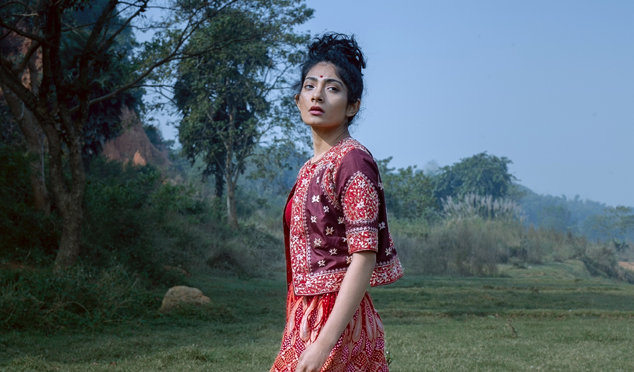Bandhani, a known Rajasthani pattern, is among the most prized possessions in a woman’s wardrobe. Designer Naina Jain who has simplified the technique has added aesthetic value and sophistication to the traditional art.
Orissa POST interacts with the ace designer who has redefined Bandhani art in the contemporary times and explores her association with the Vogue Wedding Show since 2016.
Speaking about her collection on display at the wedding show 2018, Naina says, “I have showcased my collection ‘Gulab Bai’, an inspiration from my grandmother, in which each sari has a distinct combination of bandhani and Kota weaving, using pure silver threads. Pastels like powder pink and lemon yellow have been contrasted with bold colours like crimson and deep blue to epitomize the vibrancy of woman.”
Talking about the concept behind the collection, she said, “I want to break the stereotypical norms about bridal wear, wherein the drapes encompass the simplicity and the grandeur of Rajasthani tradition. I want to make Kota Doria, a part of bridal dressing, rather than casual dressing.”
Born and brought up in Rajasthan, Naina has not received any formal training in fashion or designing. She, however, found inspiration in her roots and strove to instill classic traditional charm into her designs which incorporate organic detail, and stand true to her commitment to revive, sustain and empower Indian forms of art and textiles.
Naina has sought to redefine age-old Indian traditions in the contemporary era by creating a style that is both rich in aesthetics and modern in sophistication.
Each piece undergoes couture craftsmanship and experienced hand finishing until it arrives at perfection. Synonymous with ‘Bandhani’ art of tie and dye, Naina has synthesised Kaduwa and Meenakari technique. In Kaduwa, every motif is woven separately. Motifs of various sizes, colours and textures are featured on the same sari and the process is arduous.
These ensembles are for women who own a colourful wardrobe and boast of traditional attire and for those who respect the values of the land and its rich traditions.
Shabiha Nur Khatoon, OP






































